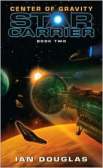 In a small town in Maine, High School teacher Jake Epping is asked by his acquaintance, diner owner Al, to come to the diner. When he arrives, Al has aged years and has gone from healthy to terminally ill in cancer. It turns out that Al has found a sort of time portal in his pantry. The portal leads to 1958. Al’s plan was to live in the past until 1963, and then kill Lee Harvey Oswald, John F. Kennedy’s assassin. Al believes this would change history in important ways, preventing the Vietnam war and other horrors. Unfortunately Al contracts cancer and cannot complete his mission. Is the past pushing back against those who try to change history? Al returns back to 2011. Things have changed, but not enough, and when the portal is used again, the past resets to how things were. Before dying, Al dragoons Jake into completing the mission. He cannot just kill Oswald a few years before the assassination attempt, however. He must be sure that the man is acting alone, and not part of one of the many purported conspiracies surrounding the Kennedy assassination. Thus starts Jake’s adventure in the past, where many things are different, yet many things are the same.
In a small town in Maine, High School teacher Jake Epping is asked by his acquaintance, diner owner Al, to come to the diner. When he arrives, Al has aged years and has gone from healthy to terminally ill in cancer. It turns out that Al has found a sort of time portal in his pantry. The portal leads to 1958. Al’s plan was to live in the past until 1963, and then kill Lee Harvey Oswald, John F. Kennedy’s assassin. Al believes this would change history in important ways, preventing the Vietnam war and other horrors. Unfortunately Al contracts cancer and cannot complete his mission. Is the past pushing back against those who try to change history? Al returns back to 2011. Things have changed, but not enough, and when the portal is used again, the past resets to how things were. Before dying, Al dragoons Jake into completing the mission. He cannot just kill Oswald a few years before the assassination attempt, however. He must be sure that the man is acting alone, and not part of one of the many purported conspiracies surrounding the Kennedy assassination. Thus starts Jake’s adventure in the past, where many things are different, yet many things are the same.
Mr. King’s research into the late fifties and early sixties is extensive and meticulous. The fact that people smoked constantly and everywhere is an obvious factoid, but the differences go much deeper. From food prices to idioms to the fact that bathrooms in the American south were still segregated, it is fascinating to discover how very unfamiliar current Americans would be with society and its mores in “The Land of Ago”. Â Jake’s quest takes him on many side tracks as he must become an inhabitant of the era. He makes friends and even falls in love, but he cannot reveal his true purpose. He must be careful lest his use of modern idiom mark him as strange. He must also keep his focus on the objective through five years of “ordinary” life peppered with research and the intermittent stalking of Oswald.
King’s mastery of style, pacing and character building shines in the prose. Despite its considerable length (eight hundred and forty-nine pages for those who still read on paper) it is not a slog to read through. Even trivial adventures become interesting when written so well. I did feel, however, that the book had perhaps been unnecessarily padded, or more accurately insufficiently cut to size. While many events serve to build the character of Jake, they might have been excised without hurting the story, and perhaps things would have moved forward a bit faster. Having said that, the many vignettes of life in the past are fascinating, often funny and as often horrifying to more modern sensibilities.
Without revealing the ending, I will say that I was somewhat disappointed that King chose to reveal some part of the “inner workings” of the time travel mechanism. While as a science fiction fan, I typically want to find out about such things, perhaps in this case it would have been better if it had simply stayed a magical mystery without explanation. I did not feel that it really added to the story, and the point made through the reveal had already been made.







































